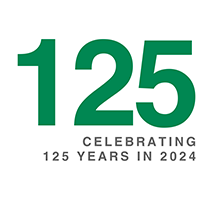![Russell v Carpenter [2022] NSWCA 252 – Appeals Court finds no requirement for a handrail on stairs at a rental property](https://www.codea.com.au/wp-content/uploads/2024/07/Images-1-1-1.png)
Russell v Carpenter [2022] NSWCA 252 – Appeals Court finds no requirement for a handrail on stairs at a rental property
Published on July 15, 2024 by Georgia Comans and Julia Harrison
A recent case heard by the New South Wales Court of Appeal saw the award of damages to a Plaintiff injured on stairs at a rental property he was staying in, overturned.
Background
In the case of Russell v Carpenter [2022] NSWCA 252, the Plaintiff commenced Court proceedings against the owner of a short-stay rental property on the NSW Central Coast after he sustained injuries to his lower back and elbow.
The Plaintiff was staying at the rental property for a golf trip. He had dropped some golf balls down the stairs and was injured when he slipped on the edge of the stairs trying to retrieve the balls.
The Plaintiff claimed that the owner of the rental property owed him a duty of care to ensure the property was safe by installing a handrail around the stairs, which he claimed would have assisted in preventing the injury.
The District Court Judge found in favour of the Plaintiff, and held that the rental property owners owed the Plaintiff a duty of care to ensure that the premises was safe and free from hazards, including through the installation of a handrail on the stairs.
The Plaintiff was awarded damages in the sum of $284,092.
Appeal to the NSW Court of Appeal
The owner of the rental property, the Defendant, appealed the Decision to the NSW Court of Appeal.
Ultimately, the NSW Court of Appeal overturned the Decision, striking out the Plaintiff’s award of damages on the basis of the following reasons:
- Duty of Care – The Defendant’s duty of care was to simply “take reasonable care to avoid a foreseeable risk of injury”, rather than to ensure the premises was safe and free from hazards.
- Risk of Harm – While the risk of a person slipping on stairs and injuring themselves is foreseeable and not insignificant and is a risk which generally attaches to sets of stairs, Kirk JA described the risk of a person slipping and hurting themselves in this case as “slight, inherent and obvious.” The Court disagreed with the Plaintiff’s argument that a handrail was required, and referred to the fact that the Building Code does not mandate a handrail for stairs. The Court emphasised their view that “the law does not require that resources be spent on risks such as those…which are slight, inherent and obvious.”
- Causation – The Court found that simply the possibility that a handrail could have assisted in preventing the injury was not sufficient to establish causation. The Court emphasised that just because a handrail over the stairs could have assisted in reducing the risk of harm does not mean that it would have in reality.
Decision of the NSW Court of Appeal
Ultimately, the Court found that there was no obligation on the part of the property owner to install a handrail on the stairs.
The Court made it clear that the property owners’ obligation to take reasonable care was not an obligation to prevent harm, and there is an expectation that the occupier (the Plaintiff in this case) needs to take reasonable care for their own safety.
The Court determined that almost all properties could be made safer, but it is important to consider how practical it would be for a property owner to address all possible safety measures which could in theory be installed at a property.
This case is an important reminder of both a property occupants’ requirement to take reasonable care for their own safety, and the difficulties that come Plaintiff’s obligation to prove that a precaution, in this case a handrail, would have resulted in a different outcome.
Please note that this article does not constitute legal advice. If you are seeking professional advice on any legal matters including employment law, you can contact Carroll & O’Dea Lawyers on 1800 040 961 or via our Contact Page and one of our lawyers will be able to assist you.


